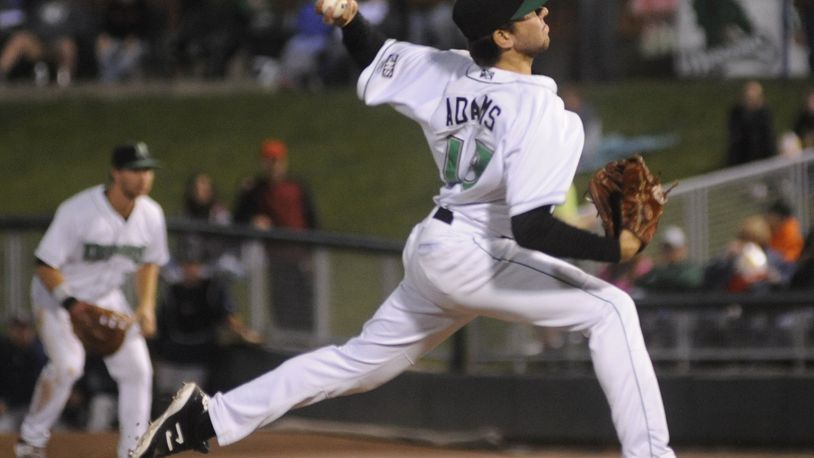Entering its 19th year of operation, an application to the Dayton Development Commission said a facility assessment study was conducted by Construction Process Solutions on Fifth Third Field in late 2016.
RELATED: Water Street developer plans new downtown residences next to Fifth Third Field
“The report noted that the ballpark is in satisfactory condition and has been maintained in a well above normal manner by the team since completion of construction,” the application says.
“The facility is experiencing typical wear and tear based upon materials selected and used,” the application adds. “There are several components that are coming due for repair and replacement due to its age.”
RELATED: Seven-story hotel coming to downtown Dayton
The team seeks close to $3.4 million in what it says is an overall $14.1 million project.
The park is a jobs generator, its owners say. Last year, Palisades Arcadia Baseball hired the Applied Policy Research Institute to analyze the Dragons’ economic impact on the Dayton area.
“Production and employment on the Southwestern Ohio regional economy is estimated to generate a total of $27.6 million in sales, 297 permanent jobs, $10.5 million in labor income, and approximately $342,000 in state and local sales and income tax revenues,” the application said.
Robert Murphy, president of the Dayton Dragons, said in an interview that the team for 18 seasons has “really tried to do things in the best, absolutely professional first-class way.”
“There’s a huge difference between how our operation is run” and how other minor-league teams may be run, he added.
In terms of investments and attention, Murphy said the team is probably comparable to Class AAA team operations.
“We probably fall more into that class,” he said.
“We have considered our responsibility as a steward of the stadium as a serious responsibility,” Murphy said.
But the field still an outdoor stadium in a four-season environment, he noted. And winters can be particularly hard on the infrastructure.
There are foundation issues around the stadium’s edge, seats are quickly come of age and there are other needs.
“You never want a facility to go without attention,” he said.
RELATED: Retailer putting HQ in downtown Dayton development
In 2015, operating the team cost $16.3 million.
“The areas immediately adjacent to the ballpark have seen significant investment in housing and restaurant/retail in recent years with additional projects in the pipeline,” the team said. “The Water Street development added jobs (PNC headquarters, Basil’s, etc) and hundreds of residents, Delco Lofts added jobs and dozens of residents, Lock 27 added jobs, and the list continues to grow.”
In August, the Dragons announced 1,242 consecutive sellouts, besting all other pro sports teams on that measure.
About the Author
